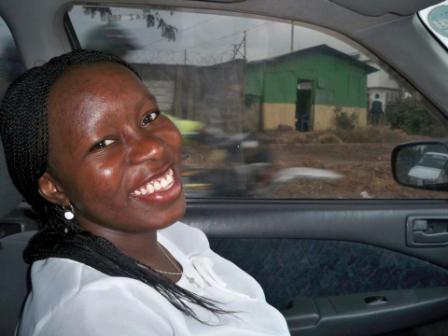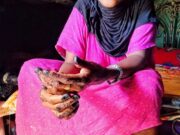For a man who had left the hospital the night before in high spirits, certain of his wife’s recovery, the news of her sudden death shocked him.
“Throughout her admission in hospital for nine months, I was certain that she would one day get out of her coma and go on to make a full recovery. I was so optimistic; I had so much hope and faith. To me, it was not a matter of if she would wake up, but when,” George says.
But now, there she was, laying on the bed, covered in a white sheet. She was gone. Gone without a goodbye. But there was no time to mourn, since there was a burial to plan, and two little boys who now fully depended on him. He had to be strong.
“I received an outpouring of support for me and my boys from relatives, friends and strangers who sympathised with my situation. This is the same kind of support I had received throughout Claris’ illness. Hundreds of people attended her burial.”
George stayed on at his rural home for about a week after the burial, most of it spent by his wife’s graveside.
“The flowers, which had been fresh and beautiful to look at, were withered within a week. This made me realise that my life had to go on; I could not spend the rest of it staring at her grave.”

Back in Nairobi, the enormity of his wife’s death hit him with brutal force.
“Clarita had incurred a huge bill. I had taken a medical loan, (insurance did not cover her illness) and at the time of her death, the loan stood at 13 million. I wondered how I would clear it. Here I was, a widower with two young sons to raise. How would I make it?”
Thankfully, his close circuit of friends helped him organise mini-fundraisers, which helped to offset part of it. He continues to repay the remaining 7.9 million.
Since George had been vocal about his situation, he began to get requests to speak about pre-eclampsia in various public forums targeting women, especially pregnant ones. However, after a few months, he decided not to do it anymore.
“Each time I talked about it, it would revive painful memories of my wife’s death, and I felt as if I was not moving forward. It became emotionally draining for me. I couldn’t take it anymore so I stopped.”
He admits that he took his wife’s death hard.
“That first year, I blocked my mind from thinking about it. I didn’t even know what I was feeling. I was numb. I refused to believe that I would never see my wife again, so I preferred not to think about it. I kept myself distracted by focusing on my sons, and burying myself in my work, which involved a lot of travel.”
His grief was so much, that during the first few months, George would find himself driving to the Aga Khan University Hospital in Nairobi, where Claris had spent a considerable amount of time before he transferred her to KNH.
“For a while, I would chat with the guards, who knew me, as well as the nurses who had taken care of Claris, and then I would return home sad and disappointed at having not seen her.”
Back at home, Claris’ absence stood out more, now that he knew she was gone for good.
“She was a good cook and loved to entertain guests, so our home always had visitors. But after her death, our home became silent, and the frequent visitors no longer came – it made me wonder whether they came only because of her.”
It was after marking Claris’ one year anniversary in December 2013 that George finally accepted that his wife was gone. This ‘sudden’ acceptance opened his eyes to on-goings around him. He began to notice the attention he got from women – friends and strangers alike – since his wife’s death. It is a realization that startled him.
Continue Reading Next Page



































